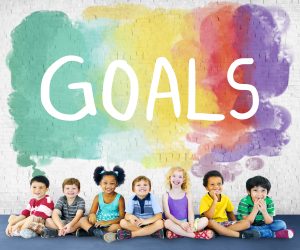Teaching Integrity: A Key to Building Resilience and Strong Character
Integrity is more than telling the truth. Integrity is doing the right thing—especially when no one is watching—because it aligns with who you are and what you value. It includes honesty, responsibility, fairness, and consistency in actions and words. How Integrity Builds Resilience Integrity strengthens resilience by: Offering students a stable inner compass when facing…
Box Breathing for Kids: A Stress-Relief Strategy Every Elementary School Counselor Should Use
Box breathing—also known as square breathing—is a simple, structured deep breathing technique designed to calm the nervous system and improve emotional regulation. It involves four equal steps: Inhale for 4 counts → Hold for 4 counts → Exhale for 4 counts → Hold for 4 counts Repeat this pattern for 4–6 cycles to help the…
Self-Control & Resilience: Strategies Every Elementary School Counselor Should Use
Self-control is the ability to manage thoughts, emotions, and behaviors in order to make choices that align with goals rather than impulses. For elementary school students, self-control looks like waiting a turn, managing frustration, staying focused when distracted, pausing before reacting, and practicing patience even when things feel hard. How Self-Control Supports Resilience Resilience is…
Boosting Self-Confidence in Children: School Counselor Strategies That Strengthen Resilience
Self-confidence is a cornerstone of emotional well-being, academic success, and lifelong resilience. For elementary school counselors, intentionally teaching and reinforcing self-confidence is not just beneficial—it’s essential. Students who feel capable, valued, and able to take on challenges are more prepared to bounce back from setbacks, persevere through frustration, and believe in their potential. What Is…
What People Say About The Wyatt Books
kind words from educators, parents, and kids!
"Going to kindergarten is a milestone for everyone and the beginning of the year is usually filled with excitement and angst. Wyatt the Wonder Dog addresses the typical concerns that most children have in a sweet and relatable way. Kindergarten really is fun!"
"Wyatt the Wonder Dog Learns about Teamwork is another great example of helping kids improve their social skills. It teaches kids the power of working together and how much better we are when we work as a community"
"[Wyatt the Wonder Dog Learns about Mindset] This book is funny! It's dogs doing things that only people do! I learned to try new things."
Wyatt the Wonder Dog Learns about Giving is a delightful book that teaches kids (and reminds adults, as well) that generosity is possible no matter how old, young, rich or poor we are. This is a powerful message and an engaging story that every child will love.
~Jen McDonough, author of Living Beyond Rich
Wyatt the Wonder Dog Learns about Friendship teaches not only friendship and making connections, but also how to become successful at problem solving. Great for school counselors, teachers and families. Bravo!
Sharissa Shatten~ School Counselor
Feeling left out? Need help getting along with friends? Wyatt the Wonder Dog Learns about Cooperation weaves important life skills into engaging story telling. Join Wyatt as he learns how to be the superhero in his group of friends by using cooperation and compromise.
~MaryFrances Gonzalez MACCCSLP
Have you ever had a friend that did some things that you disagreed with? Wyatt does and he doesn't know what to do about it. Join Wyatt as he learns that being honest with his friend is the best and only way to solve the problem. A great story!
~Lynn Hughes M.Ed. school counselor
If you've ever lost your lunch money or misplaced your favorite toy, you can relate to Wyatt the Wonder Dog. This adorable story offers simple, helpful ideas that kids and parents can use to make life less stressful and more fun!
~Erin K. Casey, author










